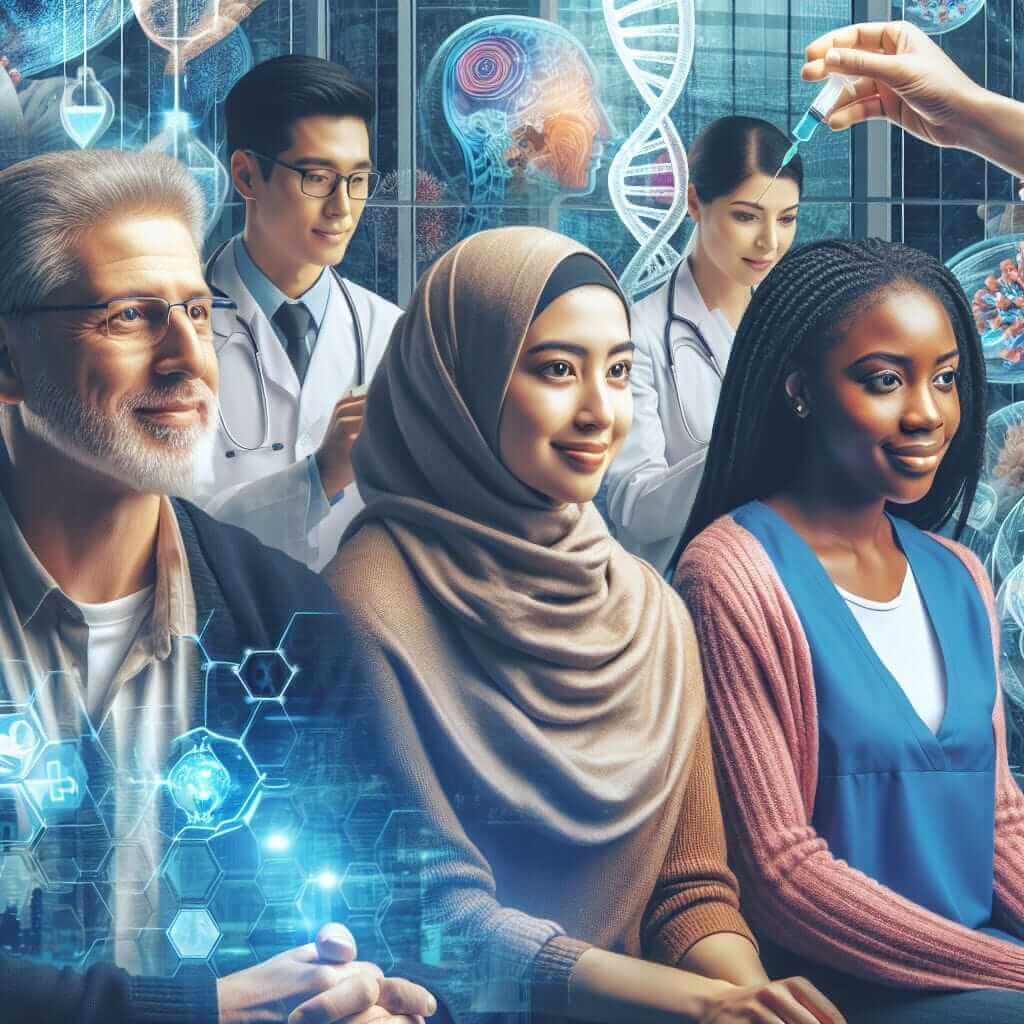In the realm of the IELTS Reading test, one often comes across diverse topics, and the implications of biotechnology in healthcare have been particularly trending due to recent advancements. Derived from historical data, there has been a consistent appearance of subjects related to technology and its societal impact, making it a notable topic for future examinations.
Reading Passage
The passage provided below is structured to reflect the type of content you might encounter in the IELTS Reading section, categorized as Medium Text.
The Social Implications of Biotechnology in Healthcare
Recent advancements in biotechnology have immensely transformed healthcare, bringing both positive and negative social implications. Biotechnology involves the manipulation of living organisms or their systems to develop products that improve human health. One prominent application is gene therapy, which aims to treat or cure genetic disorders by rectifying defective genes.
Biotechnological innovations such as personalized medicine allow tailoring treatment to individual patients based on their genetic makeup. This approach enhances treatment efficacy and minimizes adverse effects, providing a more targeted and effective healthcare solution. However, this leads to significant ethical and social debates, primarily concerning accessibility and inequality. Personalized treatments are typically expensive, potentially widening the gap between socioeconomic groups.
Another area where biotechnology has a profound impact is in the development of vaccines and antibiotics. With the emergence of drug-resistant bacteria (superbugs), biotechnological research focuses on novel solutions to combat these threats, ensuring public health safety. Yet, this raises concerns about over-reliance on technological solutions at the expense of natural and preventive care methods.
Moreover, the collection and storage of genetic information necessary for biotechnological advancements pose privacy issues. There is a risk that genetic data could be misused, leading to discrimination by employers or insurance companies. Ethical frameworks and strict regulations are crucial to safeguard individuals’ genetic privacy.

Despite these challenges, biotechnology in healthcare promises great potential in eradicating diseases, enhancing quality of life, and prolonging life expectancy. Continuous dialogue between scientists, ethicists, policymakers, and the public is essential to maximize benefits while mitigating risks.
Questions
Multiple Choice
-
What is the main idea of the passage?
A. The benefits of biotechnology in healthcare
B. The role of biotechnology in genetic manipulation
C. The social and ethical implications of biotechnology in healthcare
D. The advancements in personalized medicine -
Which of the following is NOT mentioned as a benefit of biotechnology in healthcare?
A. Targeting treatment based on genetic makeup
B. Enhancing the efficacy of antibiotics
C. Collection and storage of genetic information
D. Development of personalized medicine
Identifying Information (True/False/Not Given)
-
Biotechnology ensures equal access to healthcare for all socioeconomic groups.
- True
- False
- Not Given
-
The collection of genetic data poses a risk of data misuse by employers.
- True
- False
- Not Given
-
Preventive care methods are favored over biotechnological solutions in the passage.
- True
- False
- Not Given
Answer Key
-
Multiple Choice Answers:
- C
- C
-
Identifying Information Answers:
3. False
4. True
5. False
Common Mistakes
- Misunderstanding key points and the main ideas due to complex sentence structures.
- Misinterpreting ethical concerns as benefits instead of issues.
- Ignoring nuances in phrases such as “potentially widening the gap” which highlight implications, not definitive outcomes.
Vocabulary
- Gene therapy (noun) /dʒiːn ˈθɛrəpi/: The treatment of disease by transferring new genes into a patient’s cells.
- Personalized medicine (noun phrase) /ˈpɜːsənəˌlaɪzd ˈmɛdɪsɪn/: Medical care tailored to the individual characteristics of each patient.
- Socioeconomic (adjective) /ˌsəʊsioʊˌɛkəˈnɒmɪk/: Relating to or concerned with the interaction of social and economic factors.
- Ethical (adjective) /ˈɛθɪkəl/: Relating to moral principles or the branch of knowledge dealing with these.
Grammar Highlight
- Cause and Effect Sentences:
- Usage: These sentences explain why something happens.
- Formula: [Cause] leads to/result in [Effect].
- Example: Personalized treatments are typically expensive, potentially widening the gap between socioeconomic groups.
Recommendations for High Reading Scores
- Skim and Scan: Quickly skim the passage for the main idea, then scan for specific information.
- Practice Regularly: Frequently attempt different types of reading passages to become familiar with various question formats.
- Build Vocabulary: Enhance your vocabulary by reading extensively on diverse topics.
- Time Management: Allocate your time wisely, ensuring you have sufficient time to address all questions.
- Focus on Keywords: Identify and match keywords from the passage with those in questions to locate answers more efficiently.
By following these strategies, you can significantly improve your performance in the IELTS Reading section and approach the exam with confidence.